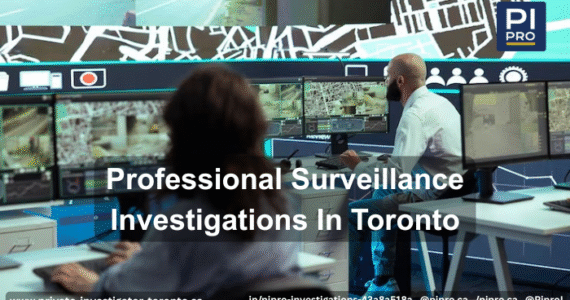
Role of Private Investigators in Corporate Due Diligence
The protection of business interests with investments depends on proper corporate due diligence. A comprehensive investigation into business financial health and legal position alongside operational assessment runs parallel to entering partnership agreements and acquisitions or mergers. The main purpose of corporate due diligence includes business fraud detection work which provides companies protection against deceptive practices. A structured due diligence framework and corporate risk evaluation system form part of the procedure to detect potential risks and liabilities. This article explains corporate due diligence for business protection through fraud detection techniques followed by due diligence procedures and extensive enterprise risk assessment protocols.
Business Fraud Detection
Businesses regardless of size have to deal with significant fraud threats which becomes easier to prevent financial losses by detecting fraud early. Checking for business fraud stands as a foundational part of corporate due diligence because companies need to establish that their proposed partners and acquisition candidates truly exist and maintain adequate trustworthiness.
Common Types of Business Fraud
-
Financial Statement Fraud
The deception of financial data used by companies to obtain investor investments and secure loans constitutes Financial Statement Fraud.
-
Asset Misappropriation
Business owners face asset misappropriation when someone steals company property that includes money together with physical assets along with intellectual property.
-
Bribery and Corruption
Bribery and Corruption contain unethical activities that involve providing money secretly to corruption factors.
-
Identity Fraud
Falsification of documents or misrepresentation of company executives.
Methods for Business Fraud Detection
- Companies need to perform detailed background examinations of their essential executives along with stakeholders to discover past fraudulent actions.
- Business operations are investigated through private investigators to detect questionable activities.
Due Diligence Process
A company evaluation through the structured due diligence approach involves thorough assessment of its credentials alongside assets and potential risks. Organizations need to execute this methodology before executing mergers and acquisitions and major business transactions to avoid financial and legal difficulties.
Steps in the Due Diligence Process
-
Financial Due Diligence
The evaluation includes reviewing balance sheets and inspecting profit and loss statements along with tax return information.
A thorough examination should take place to determine the matter of cash flow and debt responsibilities.
-
Legal Due Diligence
Organizations need to examine all documents related to contract agreements and intellectual property rights along with licenses.
Organizations need to review existing and active legal disputes during evaluation processes.
-
Operational Due Diligence
The process evaluates both supply chain reliability and business operational systems.
The evaluation analyses management performance together with workforce organization and structure.
-
Reputational Due Diligence
A thorough examination of how the organization stands in its market sector.
Reviewing customer and employee feedback.
-
Regulatory Compliance
The organization needs to follow both industrial directives and mandated legal guidelines.
Within the process businesses conduct evaluation for existing and upcoming compliance threats and legal infractions.
The completion of rigorous due diligence assessments enables businesses to develop accurate decisions thus avoiding money losses and damage to their reputation.
-
Corporate Risk Assessment
The assessment of corporate risks stands vital for performing corporate due diligence. A business needs this approach to discover and assess all possible risks affecting its financial stability together with operational achievements.
The Assessment of Corporate Risks investigates Multiple Priority Areas
-
Financial Risks
The evaluation of debt levels together with revenue stability.
Assessing creditworthiness and market risks.
-
Operational Risks
Identifying inefficiencies in business operations.
Evaluating supply chain vulnerabilities.
-
Legal and Compliance Risks
A thorough evaluation exists for industry rules and legal standards compliance.
Mitigating potential litigation risks.
-
Market and Competitive Risks
Analysing market trends and competition.
Business performance is affected by various economic factors which need to be evaluated.
-
Cybersecurity Risks
Data protection systems along with IT infrastructure vulnerabilities must be evaluated as part of the assessment process.
Executed data protection systems which defend businesses from breaches.
Businesses that perform corporate risk assessments waste potential threats which helps guarantee both growth and long-term stability.
Role of Private Investigators in Corporate Due Diligence
Private investigators perform essential duty for businesses through their investigations of concealed frauds along with hidden liabilities and risks. The combination of expertise in surveillance and background checks and forensic investigations creates knowledge available for business decision-making.
How Private Investigators Assist in Due Diligence
-
Background Investigations:
Private investigators conduct intense examinations on key personnel and staff members and stakeholders to detect warning signs.
-
Asset Verification:
Private investigators ensure that a company’s assets match their declared ownership status by verifying actual legal ownership of assets.
-
Fraud Investigations:
Detecting financial irregularities, embezzlement, and fraudulent activities through forensic analysis.
-
Competitive Intelligence:
Private investigators gather competitive intelligence by collecting information about market rivals to evaluate their threats alongside any unethical business practices.
-
Litigation History Checks:
One must review public legal records for past lawsuits or regulatory violations involving a company through Litigation History Checks.
-
Surveillance Operations:
Operation monitoring combines activities to detect unethical actions and corporate espionage attempts as well as internal threats.
Businesses improve their thorough investigation capabilities through private investigator expertise which reduces their exposure to money loss and negative reputation and legal confrontation risks.
Conclusion
Due diligence procedures by businesses remain fundamental for shielding enterprises against financial fraud and operational issues as well as lawsuits and legal entanglements. Companies can minimize risks and base their business choices on reliable information through combined application of fraud detection strategies and structured diligence processes and comprehensive risk analyses.
Standard due diligence methods become stronger through private investigator involvement which reveals hidden risks and frauds together with potential liabilities that may remain undetected. The due diligence process for corporations provides businesses with assurance of their vital business interests so they can stay competitive in the modern market.
Interested in more or choose the best private detective in Toronto? Call us now and speak with our specialists to know how our virtual investigation services can help.
Private investigator Brampton, Private investigator Oakville, Private investigator Pickering, Private investigator skip trace, Workplace investigation, corporate investigation services, Private investigator Mississauga, Private investigator Markham, Private investigator Toronto.




